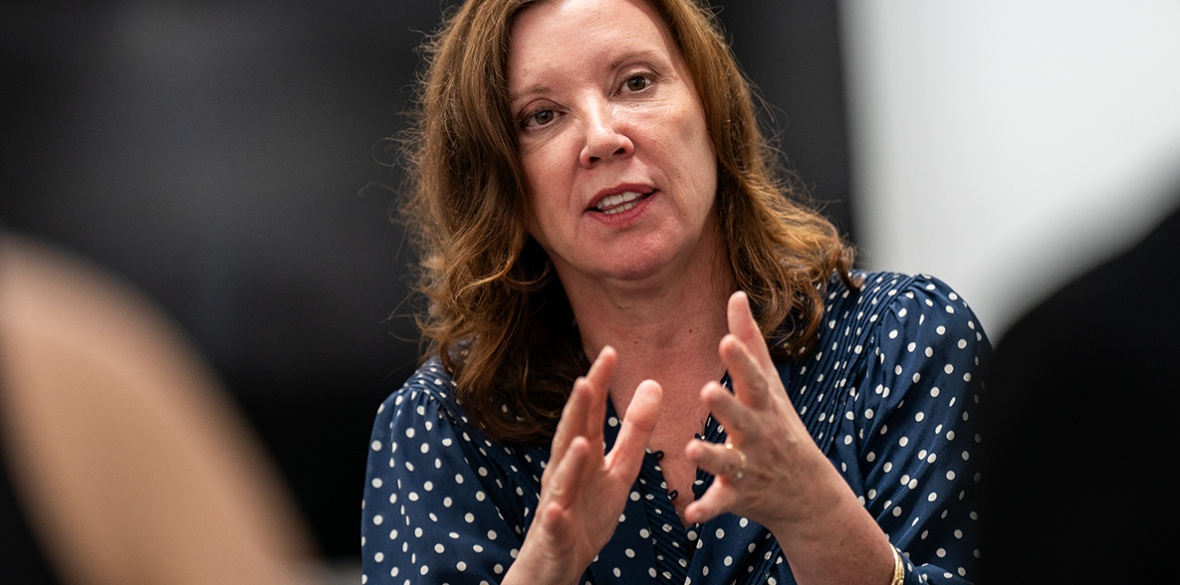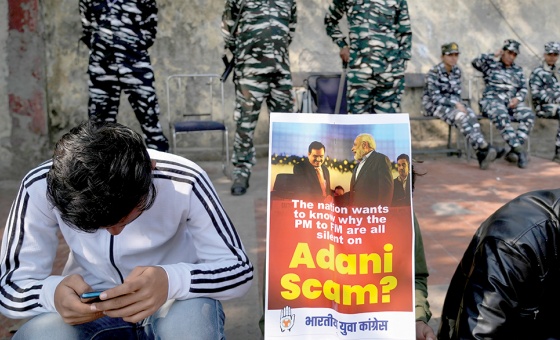This is the last article you can read this month
You can read more article this month
You can read more articles this month
Sorry your limit is up for this month
Reset on:
Please help support the Morning Star by subscribing here
BRITAIN’S most vulnerable children are being placed in caravans and Airbnbs by a social care system that puts “profit-making above protection.”
In a heartbreaking report, the Children’s Commissioner for England Dame Rachel de Souza slammed the “stark failure of the children’s social care system” as she told of an autistic teenager left in an Airbnb for nine months.
The girl was put there under supervision by her council following pressure to discharge her from hospital having not met the criteria to be held under the Mental Health Act.
Dame Rachel also described how a teenage girl who suffered parental domestic violence and neglect being given a supervised crisis placement in a caravan, before being housed in a children’s home 120 miles from her grandparents.
The commissioner called for “radical investment in creating new and safe places for children to live” and an end to “profiteering in children’s social care.”
She said her research published today shows children’s basic rights to safety and happiness are “too often being ignored in a system that puts profit-making above protection and allows decisions to be dictated by local resources.”
The two girls are among a soaring number of youngsters facing deprivation of liberty orders (DoLs) from the High Court due to the high levels of care and supervision they need.
Many are being placed in “highly unsuitable” accommodation despite government guidance saying they should be placed in settings such as children’s homes or care home services.
Such children “exist within a health and social care system which is in urgent need of investment and reform,” Dame Rachel said.
“They are enduring things no child should ever have to: contained, often in isolation, in illegal children’s homes without the opportunity for their voices to be heard.
“The children living in the care system today need urgent and bold change — no more strategies, no more debates.”
She said that while the vast majority of children subject to DoLs are in the care system, “many children live with these restrictions in places that are highly unsuitable, including illegal children’s homes, Airbnbs or on hospital wards while awaiting discharge.
“Far from providing the environment they need to help them with the behaviours that have caused concern, this leads to children feeling unsafe and uncared for, further adding to their trauma.”
Her report revealed a shocking four-fold increase of applications for DoLs — rising from 359 in 2020/21 to 1,368 in 2023.
It recommended that “far fewer” children should be subject to the orders and a ban on those who are being placed in an illegal children’s home amid measures calling for greater transparency and oversight in decision-making.
NSPCC head of policy and public affairs Anna Edmundson said it is “completely unacceptable” that children are being placed to live in such “appalling conditions and unsuitable accommodation, such as caravans, Airbnb rentals and even tents.”
“It is shocking that children who are under deprivation of liberty orders and are particularly vulnerable — often having been through challenging experiences including abuse and neglect and in need of intensive support and care — are being made to endure such awful living conditions,” she added.
“It is vital the government follows through to ensure all children are given the care, protection and support they need, which includes safe and suitable accommodation, to heal and move forward with their lives."
Education Secretary Bridget Phillipson will today confirm plans to “break down the barriers to opportunity that they are facing, including by developing new community-based provision to meet their needs to give children the best life chances.”
New rules to stop profiteering in children’s social care will be announced today after government revealed local authority spending on looked-after children has more than doubled over a decade to £7 billion in 2022/23.
The watchdog Ofsted is to be empowered to crack down on exploitative providers, while companies will be made to set out their finances in a bid to increase transparency across the sector in England.
The biggest 15 private providers make an average of 23 per cent profit, according to analysis by the Local Government Association, which said there are more than 1,500 children in placements each costing the equivalent of half a million pounds every year.
The Department for Education said a new duty will also be placed on parents to be required to get local authority consent to homeschool their child if there is a child protection inquiry or plan in place.










